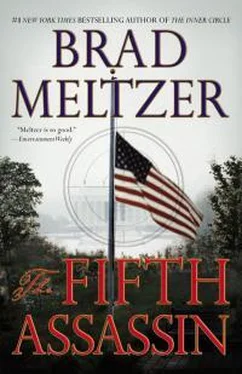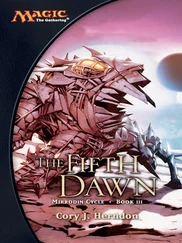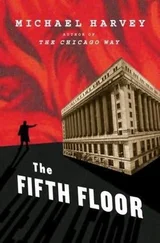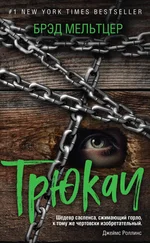“Fed money,” a mechanical voice says through Tot’s speakerphone. I didn’t realize his phone was even on, much less that Immaculate Deception was listening in. “Ask Santa. I bet he can tell us where it’s from.”
Two weeks back, I heard them mention Santa . At first, I thought Tot was being facetious. But I’m thinking I just found another Culper Ring member: Santa, the guy who brings them the best high-tech toys.
“Mac,” I call out, “how many Thin Mints will it cost me to have you look up details on my old friend Marshall?”
“I’ve been looking since you found that John Wilkes Booth peephole. You’re a bigger nerd than I thought, by the way. Nice job, though,” Mac replies. “Marshall’s got no credit cards… no phone records… and he files his tax return through a P.O. box. Guy definitely likes his privacy.”
“What about his cell phone?” Tot asks.
“Already tried. He’s using a Trustchip.”
“What’s a Trustchip?” I ask.
“Encrypted. Expensive. Usually for big companies or government contractors,” Mac explains. “Whoever he is, he’s not playing around. I can’t see calls or messages in or out.”
“Can’t you just turn on the phone’s speaker and we’ll listen in?” Tot asks.
“Checked that too. Headphone in.”
It was the first trick Mac taught me when they brought me into the Culper Ring: In any smartphone, it’s easy for someone to remotely turn on your speakerphone. But if you want to thwart it, you plug something into the headphone jack since speakers get disabled when headphones are enabled.
“What about a home address?” I ask.
“Apartment in Crystal City, Virginia.”
“Then there we go,” I say. “Next stop: Crystal City.”
“And that’s your big idea? Just walk up to Marshall and ask him if he’s the murderer?” Tot asks.
I shake my head. I haven’t seen Marshall in over a decade. I have no idea if he’s working with Clementine, or the President, or even if he’s the one imitating John Wilkes Booth. But right now a man is dead—and since it was my name that was found in Marshall’s pocket, I’m now tied to whatever the hell is really going on here.
“I know there’s something you’re not saying about this guy, Beecher. And I appreciate you trying to be proactive, but if Marshall’s our killer, he’s gonna be dangerous. You can’t just go knock on his front door.”
I totally agree. “Who says we’re gonna knock?”
PART II
The Second Assassination
“I thank you, doctor, but I am a dead man.”
—President James Garfield, while being treated
on the floor of the train station where the assassin,
Charles Guiteau, shot him in the back
He was the second President murdered in office.
10
July 2, 1881
Washington, D.C.
President Garfield was scheduled to be on the 9:30 a.m. train. Like most Presidents, he was running behind schedule. It was hot in Washington—every summer was always brutal in its own way—and on top of that, Garfield was exhausted. Though he’d spent barely four months in office, he already knew it was hard being President.
And so he was making this train trip. His first stop would be at his alma mater, Williams College, to attend commencement. And then he was heading to northern New England for a well-earned vacation.
He never made it out of the station.
At 9:20, his carriage pulled up to the Baltimore & Potomac Railroad Depot at what is currently Constitution and 6th Street in downtown D.C. Behind him, in a second carriage, were his two sons, Harry and Jim.
Realizing he had a few minutes, Garfield decided to stay in the carriage, catching up with his friend and secretary of state, James Blaine. During the election of 1880, both Blaine and Garfield were among the Republican nominees, but it was Garfield who was picked as the true compromise candidate—the man who would unite the various party factions.
As they sat there in the carriage, Blaine was calm, playing with his cane and tossing it over and over in the air. At the time, the Secret Service wasn’t in charge of presidential protection yet. With his top hat and gray traveling suit, the President eventually stepped down from the carriage, leading his friend and family into the station.
Inside, among the Cabinet members who were waiting to see him off was Robert Todd Lincoln, the eldest son of the first slain President.
Entering the nearly empty station with a few minutes to spare, President James Garfield was calm. He was relaxed. And he had no idea that a slight five-foot-five-inch man named Charles Guiteau had arrived an hour earlier and was hiding in the washroom.
Unlike John Wilkes Booth, Guiteau wasn’t an actor. He hadn’t prepared any final, memorable lines.
Waiting for the President to pass, Guiteau was silent as the two-hundred-pound commander in chief marched through the station. Without a word, Guiteau rushed the President from behind, pulled out the small, snub-nosed British Bulldog pistol that he’d bought a month earlier, and fired at the President’s back.
The first shot seemed to graze Garfield’s arm, so Guiteau stepped closer and fired again.
That shot hit President Garfield in the back, above the waist. The President sank to the floor. His top hat was crushed, his gray traveling suit covered in blood.
Still silent, the assassin Guiteau tucked his gun into his pocket and walked quickly to the exit. Outside, a D.C. cop heard the two shots. Racing to investigate, the officer yanked open the door just as Guiteau slammed into him. The officer didn’t let the flustered man pass.
“I have a letter to send to General Sherman!” Guiteau blurted, speaking his first words. Within seconds, a ticket taker and depot watchman grabbed Guiteau from behind, tackling the man who had just shot the President.
Inside, Garfield’s younger son, Jim, was bawling, the older son trying to comfort him. People were screaming, begging for a doctor as blood spread across the station floor.
By noon that day, as the news of the shooting traveled, President Garfield, who just months earlier had been put in office as a result of political compromise, was suddenly a leader of enormous stature.
The nation prayed that Garfield might live—and he did, though he never recovered. Dwindling from two hundred pounds down to a hundred and twenty, President Garfield died in bed two months later.
At the time, some said God was judging the nation. Others said Guiteau was part of a grand, power-grabbing plot.
The assassin Guiteau never hid the truth: He told them he was trying to prevent another civil war. No one believed him.
But he was right—and he said it best: “God makes no blunders… He selects the right man every time for the right place; and in this He always successfully checkmates the Devil’s moves.”
John Wilkes Booth had done his job as the Knight of Spades. And now the Knight of Diamonds had completed his task.
11
Today
Washington, D.C.
Today was a perfect day to kill a President.
The Knight knew it as he stood in the cold on the corner of 16th and P Streets, ignoring the passing cars of early commuters and staring at the wooden double doors of his newest destination, the massive Neo-Gothic castle known as Foundry United Methodist Church. This would go better than the mess last night at St. John’s.
Without a doubt, he could’ve waited—could’ve pushed it back a day… but now… with Beecher already involved… No. History had already been written. It couldn’t be changed.
President Garfield was shot at exactly 9:25 a.m.
The Knight glanced down at his watch. Less than an hour to go.
Читать дальше











